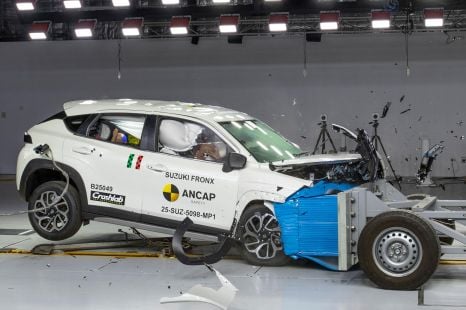

Damion Smy
Suzuki Fronx scores one-star ANCAP rating after seatbelt failure
7 Hours Ago
Criminals in Saudi Arabia might think twice about running now, with Lucid supplying drone-carrying police cars to the Middle Eastern country.
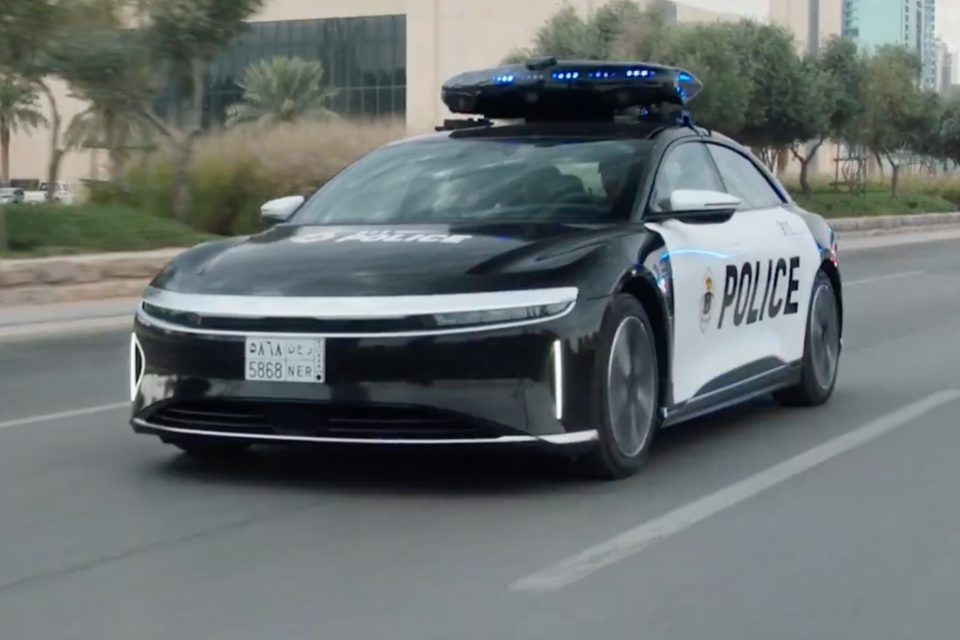
Luxury electric car manufacturer Lucid will soon provide a version of its Air sedan to police in Saudi Arabia, and it’s got a trick up its sleeve… or rather, on its roof.
Revealed at the the World Defense Show in Riyadh, at first glance the police version of the Air seems like it has gained nothing more than a paint job.
The large light and siren pod on the roof, however, can open at the press of a button to release a drone.
The Saudi Arabia Ministry of the Interior published a video showing the Air among other Saudi police cars, including Ford Explorers and Dodge Chargers.
It’s unclear how many Airs will join police fleets in the Kingdom, though more details may be forthcoming from the World Defense Show this week.
It’s unclear what capabilities the drone has, but we can speculate about the Air’s capabilities.
Judging by the wheels the police Air is wearing, it looks to be the base model Pure. The Pure features a single electric motor that sends 320kW of power to the rear wheels.
This allows the Air Pure to complete the 0-100km/h sprint in 4.5 seconds. Flat out, the Pure will reach 200km/h.
The Pure uses a 92kWh battery pack that grants the sedan estimated range of roughly 700 kilometres on the stricter US EPA cycle. The battery is also capable of vehicle-to-load bi-directional charging.
Additionally, when the vehicle is connected to a 350kW DC charger, roughly 320km of range can be restored in just 17 minutes.
Lucid has been struggling to ramp up electric vehicle (EV) production and achieve profitability.
Bloomberg reported in October 2023 that, per its estimates, Lucid was losing roughly US$338,000 (A$535,000) on every Air it sells. For context, the Air is priced from US$77,400-$249,000 (A$122,000-$394,000), depending on the variant.
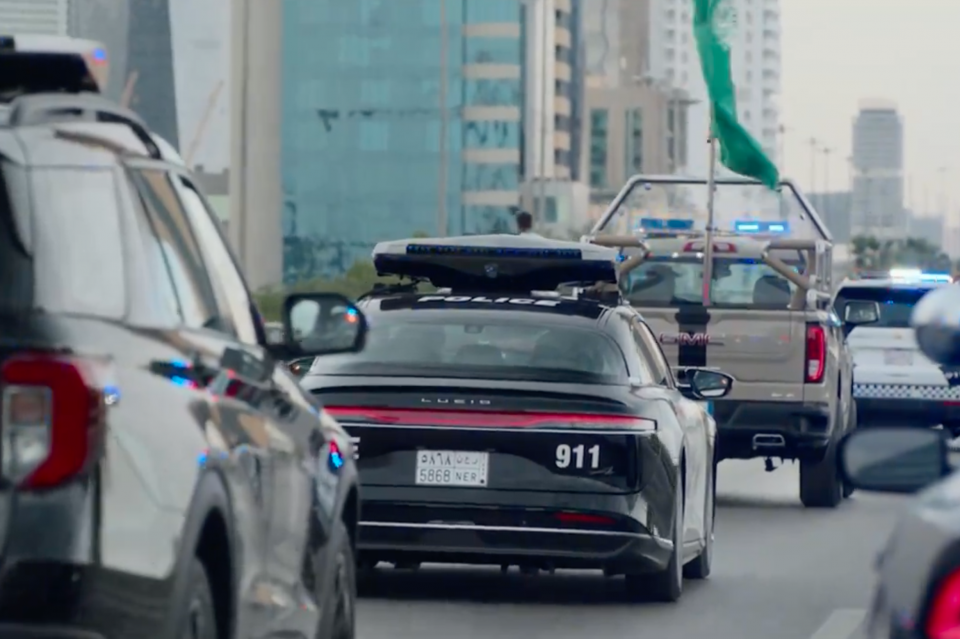
Lucid’s share price is down from a peak of US$55.21 (A$87.60) on November 19, 2021 to just US$3.31 (A$5.08) today.
It also posted a US$2.6 billion (A$4.12bn) loss in 2022 and cut 18 per cent of its workforce – or around 1300 workers – back in March 2023. It’s set to announce its 2023 financial results on February 21, 2024.
A large reason why Lucid has been able to stay afloat thus far is due to heavy investment from Saudi Arabia’s Public Investment Fund (PIF). The PIF owns up to 60 per cent of the American EV manufacturer.
Lucid has also set up a factory in the country, which is not only the first overseas factory for the EV producer, but the first car factory in Saudi Arabia.
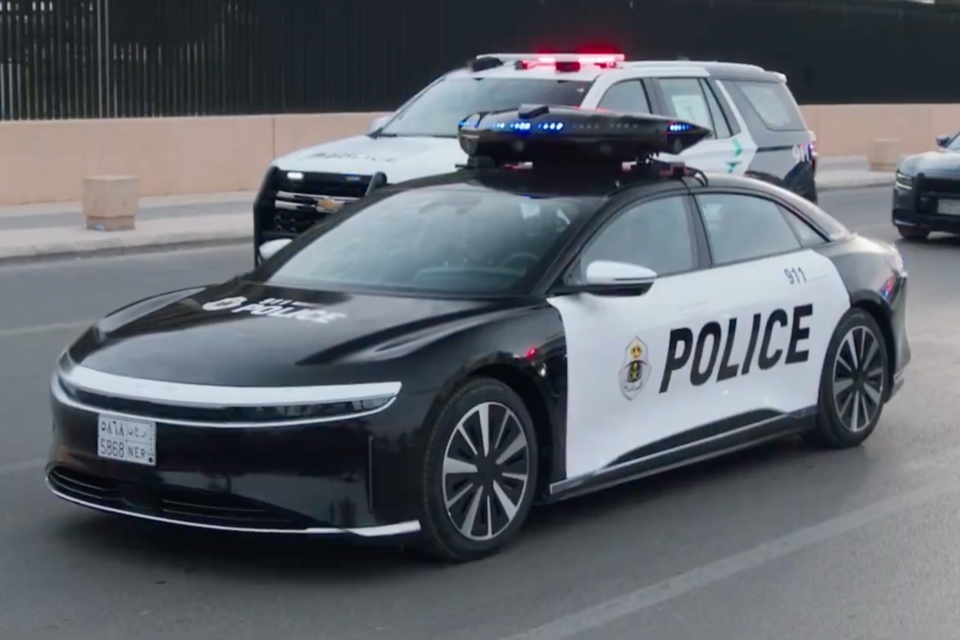
Initially, the factory is only able to assemble kits that are shipped over from the US, at a rate of 5000 annually.
However, Lucid hopes the factory can produce cars from scratch with an annual production capacity of 155,000 units – including semi knocked down (SKD) kits – from 2025.
The PIF also backs Aston Martin, which recently partnered with Lucid to receive “future powertrain and battery technology”.
As part of the new partnership, Aston Martin will issue around 28 million new shares to Lucid, giving the American firm a stake of about 3.7 per cent in the British firm.
Aston Martin has also agreed to pay Lucid “in excess” of US$450 million ($673 million). These payments will be made in phases, and the total figure includes a lump sum, as well as cash for drivetrain components, batteries, electronics, and consulting and technical services.


Damion Smy
7 Hours Ago
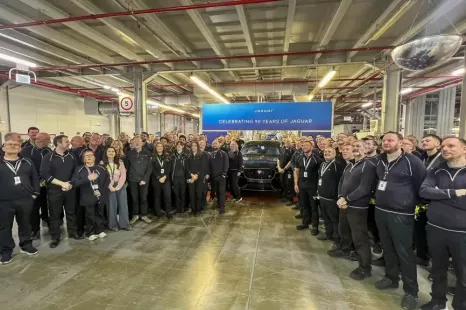

Damion Smy
11 Hours Ago
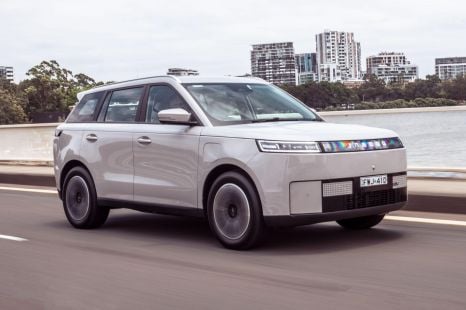

Josh Nevett
13 Hours Ago
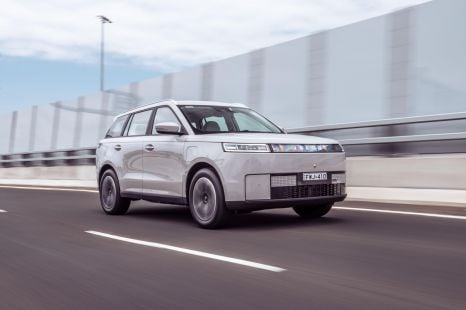

Josh Nevett
13 Hours Ago
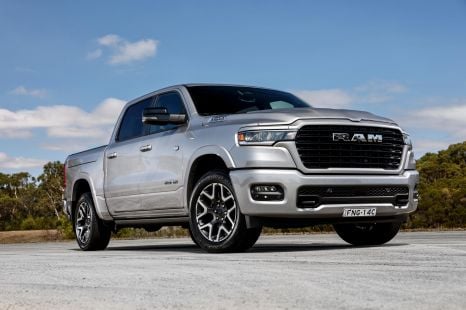

Damion Smy
13 Hours Ago
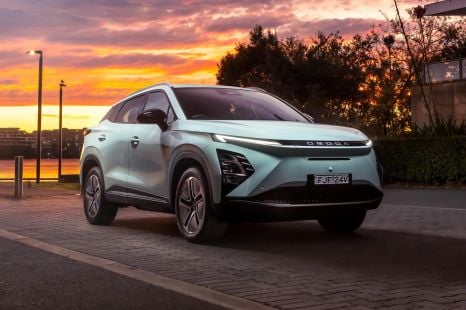

CarExpert.com.au
14 Hours Ago